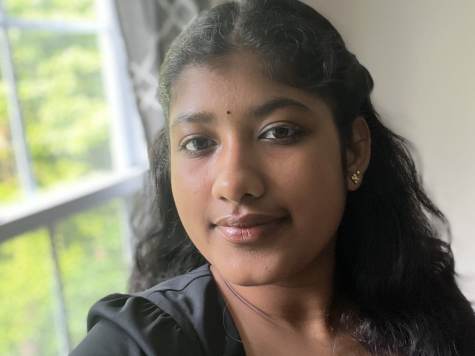Of all the things you can count on the Internet for, its ruthless and zealous criticism of talented young women will always be at the top of the list. Their latest victim is rising star, Rachel Zegler. Zegler is a 22-year-old actress who made her on-screen debut in 2021 as María in Speilberg’s musical West Side Story. Since then, she’s been in Shazam! Fury of the Gods and played the lead role of Lucy Gray in The Hunger Games: Ballad of Songbirds and Snakes. Her performance in such major productions so early in her career speaks volumes of her talent, both as an actress and a singer. Yet, most people don’t know her for her impressive theatrical abilities, but rather for some drama over her being cast in Disney’s upcoming live-action adaptation of Snow White. The extent of the hate Zegler has received is ridiculous, but the issue as a whole sheds light on a more interesting dilemma, which is the intense scrutiny to which female entertainers like Zegler are placed as opposed to––well, everything else.
Zegler’s drama started at Disney’s 2022 D23 Expo presentation, where in a brief interview Zegler made comments about the modernization of the classic Snow White fairy tale and how “it’s no longer 1937, and we absolutely wrote a Snow White that is not going to be saved by a prince.” This, and a few other comments from her on the same issue, were enough to spark the internet’s fury over her “smug” and “entitled” attitude and her dislikeable demeanor. Suddenly, it seemed as though Rachel Zegler could do no good. Almost every subsequent headline of hers was besmirching, from her comment on the SAG picket line about how she had a right to be paid for her movies being streamed online, to her childish fear of the “Snow White’s Scary Adventures” ride at Disney World. It was all just “annoying”, “rude”, or “disrespectful” in the eyes of the media.
Here’s the thing: almost every single thing people antagonize Rachel Zegler for is harmless and hypocritical, especially if you consider how many other actors have gotten away with saying similar things. For instance, when asked about their respective roles as Anthea in Shazam and Elvis Presley in Priscilla, Rachel Zegler, and Jacob Elordi, best known for his role as Nate Jacobs in Euphoria, both replied along the lines that they would take any role they got––they just needed a job. Elordi also claimed that before the film’s production, his only knowledge of Elvis Presley came from the children’s movie, Lilo & Stitch (signifying that he wasn’t a fan of the rockstar, or at the very least hadn’t even heard of his work). On the other hand, most people left out the parts of Zegler’s responses where she expressed how much she liked the Shazaam franchise and how lucky she was even to receive a callback. It’s not just male actors who can get away with this (supposedly) apathetic or ungrateful attitude, however, and Zegler is also not the first live-action Disney princess to advocate for a more feminist twist to the original work. In the 2017 remake of Beauty and the Beast, Emma Watson pushed for her character’s independence by advocating for Belle to be the inventor, rather than her father, and refusing to wear impractical clothing and a corset. Perhaps it’s the fact that Emma Watson has been in the public eye for over a decade by then, or perhaps it is blatant bias against upcoming actresses. Nonetheless, it’s unfair that Zegler has received hate for a narrative choice she likely had no say in.
Now, a part of the issue here is that, as much as we as a society would like to believe otherwise, the double standard against women, especially in entertainment, persists and is excruciatingly harsh. There’s so much stigma surrounding how a woman is supposed to look and behave; criticism if she’s too old or too fat, if she isn’t a feminist, if she is a feminist. The list goes on. The internet is just so prone to obsessing over criticism by polarizing and grossly exaggerating relatively harmless opinions. It’s so easy and convenient to criticize and blame a single individual, albeit undeserving, rather than blame the system at large. A multinational mass media corporation like Disney would never send out their actors to market their productions without media training. So if you have a problem with the modernization of Snow White, take it up with the Disney executives who keep rehashing the same inaccurate “girl-bossing” version of feminism in their unnecessary live adaptations, not the girl who’s promoting it.
The internet owes Rachel Zegler a massive apology, and following her success in the new Hunger Games movie, Ballad of Songbirds and Snakes, it does certainly seem like she’s getting that. In other words, the internet seems to be (slowly) moving onto other, similarly frivolous things. The internet’s power to hold people accountable for their actions can be a good thing. But it’s interesting how this influence and criticism directed so intensely at celebrities isn’t shown toward more meaningful matters. Why not hold policymakers or politicians, who have much more direct and profound impacts on society, to the same standards we hold actresses and singers? This entire debacle demonstrates a need for better critical thinking and judgment skills, a need for better priorities. There doesn’t seem to be any good reason why we hold female actresses and singers to the highest judgments that we do, while we let so many other injustices in the world go by. There doesn’t seem to be any good reason for why we’re so obsessed over Rachel Zegler or any other celebrity, over drama that is, in the end, just inconsequential.




































